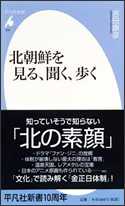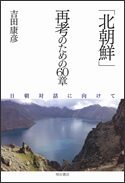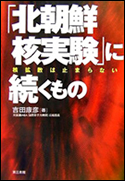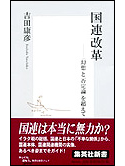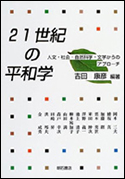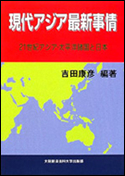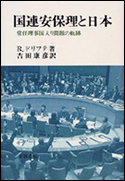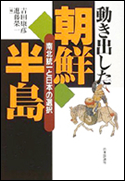2009年12月18日
Future of the United Nations
Apart from a confusing comparison, I will now concentrate on the United Nations. The preamble of the UN Charter begins with the phrase; “We, the peoples of the United Nations……” In this context, the peoples were those belonging to a group of “free and democratic” nations fighting against the Axis powers, namely, Nazi Germany, Fascist Italy, Militarist Japan and a several East European countries, such as Hungary, Romania and Bulgaria ---the satellites of the Nazi.
The United Nations, by origin, was a military alliance led by the United States and the United Kingdom. It is a popular story that it was Franklin Roosevelt who gave the nomination, upon consent by Sir Winston Churchill, on the New Year’s eve of 1941 in Washington. Sir Winston was taking a bath at the White House as a personal guest of the US President, who knocked at the door of the bathroom proposing that the new post-war peace organization be named “the United Nations.” Until then, the two leaders had agreed to name it “the Associated Powers,” in abbreviation, the AP, which must have been more confusing with the same pronunciation with the Associate Press, an American news agency.
On the following day, New Year’s Day of 1942, the two Anglo-American leaders a issued a joint declaration of the United Nations, calling on their allies to beat the Axis to defend peace and democracy. The name of the United Nations was first used in this declaration.
The name of the United Nations as the now-defunct military alliance during the World War Two carries a bitter memory for most Japanese, since the Charter still keeps the so-called “enemy clause,” authorizing its Member States to take coercive measures, namely military action, against the Axis nations, such as Japan, if necessary, without prior approval by the Security Council. The words “enemy states” appear twice in the Charter, Article 53 and 107. In Japanese, therefore, the United Nations is translated as “Kokusai Rengo(Kokuren),” or the International Union or the International Association, if literally re-translated into English.
In substance, the structure of the UN also remains anachronistic. The Security Council, the most important organ for the maintenance of international peace and security, is dominated by the five former Allies, namely, China, France, Russia, the United Kingdom and the United States as permanent members with veto power. Japan and Germany, now major world economic powers,---the second and third largest power in terms of their financial contributions to the world organization in accordance with their gross domestic product, have been unsuccessful in winning permanent seats in the Security Council. The five Permanent Members are adamant to preserve their privileges.
According to the Charter, the United Nations consists of six principal organs; the General Assembly, the Security Council, the Economic and Social Council, the Trusteeship Council, the International Court of Justice and the Secretariat. The Trusteeship Council, which dealt with former colonies leading to independence or autonomy, terminated its activities more than 20 years ago.
The Economic and Social Council, or the ECOSOC, was intended to cover international economic, social, cultural, educational, health and human rights issues for the purpose of making recommendations to the General Assembly, the Member States and the Specialized Agencies to promote international cooperation. In the minds of the drafters of the Charter, the ECOSOC was to be as important as the Security Council to govern the post-war world.
Contrary to their initial ideas, the ECOSOC, now composed of 54 nations, has become a mere rubber stamp of the General Assembly with the duplication of most of the agenda items.
In addition, most of the key pending issues, including international financial crises and global warming, have been discussed outside of the UN framework, such as G-8, G-20 summit meetings and large-scale UN conferences held on an ad hoc basis. The ECOSOC, therefore, has become more or less a nominal and marginal forum of discussions.
In 1995, the 50th anniversary of the founding of the world organization, a comprehensive UN reform plan was submitted by the Commission on Global Governance, --an independent panel of scholars, statesmen, diplomats and retired senior UN staff members, one each from 28 countries, proposing that the ECOSOC should be abolished, as well as the Trusteeship Council. Instead, the Commission proposed, a more politically influential Economic Security Council should be created in parallel to the Security Council.
The Commission, co-chaired by former Swedish Prime Minister Ingvar Carlsson, also proposed that a Council on the Global Commons to administer the environment, space and the oceans, as well as the other natural resources should also be created in the place of the Trusteeship Council. However, 10 years afterward, the two proposals still failed to be implemented.
The ECOSOC exists rather only in formality. However, the ECOSOC has contributed to a survival of the UN through its linkage to the non-governmental organizations, NGOs, even while the UN itself was found powerless and helpless due to the East-West confrontation.
The Security Council had been paralyzed for a long time with repeated use of veto by the United States and the ex-Soviet Union. The Security Council was practically unable to do anything to mitigate the nuclear arms race and serious armed conflicts, such as the Vietnam War and the Soviet invasion into Afghanistan.
The Security Council was revived only after the end of the Cold War, with frequency of the use of veto drastically reduced. During the post-cold war period, peace-keeping operations were deployed in Asia, Africa and the Middle East one after another under unanimous decisions by the Security Council.
Article 71 of the UN Charter stipulates that the ECOSOC may make suitable arrangements for consultations with non-governmental organizations which are concerned with matters within its competence. It is the only reference to the NGOs in the Charter, but more than 2,000 international NGOs are now registered as in consultative status with the ECOSOC, in accordance with Category A, B and C, with NGOs attending the ECOSOC meetings, expressing their views, and distributing their papers. With the participation of NGO representatives, discussions have been made more active and lively, not only in the ECOSOC, but also in other agencies within the UN system, such as the UNESCO, WHO, ILO, FAO and the World Bank.
UN Secretary-General Xavier Perez de Cuellar, in the late 1980’s, described the NGOs as a window for the United Nations opening its doors to the outside world. Article 71 of the Charter is now a valuable legacy for the entire world, since none of the international issues of global concern could be overcome without cooperation and assistance from the non-governmental and non-profit organizations.
Historically, Article 71 was inserted upon request by the American delegation attending the Dumbarton Oaks Conference which drafted the Charter in 1944. The delegation was working closely with representative of labor unions, religious organizations, such as Christian church groups, and volunteer workers bodies.
The first full-scale involvement of NGOs in UN history was the Conference on Human Environment held in Stockholm in 1972, when NGO representatives working for environmental protection and natural conservation, in an NGO forum, presented their expertise views and proposals to their government counterparts to save the Earth from degradations and destructions.
The Stockholm Action Program was thus the first and major achievements of government and NGO collaboration. The Stockholm model was respected by the following UN conferences on major global issues, such as disarmament, development and human rights.
In 1992, 20 years after the Stockholm Conference, the UN Conference on Environment and Development (UNCED) was held in Rio de Janeiro, on the largest-ever scale in history, attended by a total of 30,000 governmental and non-governmental representatives. The UNCED, also called “the Earth Summit” was highlighted by the conclusion of an international NGO treaty, the first in history, with 3,000 NGO representatives engaged in environmental activities, taking part in drafting process.
The move ushered in a new era of the visible role of citizens emerging as a new actor in international relations. The Rio Summit also marked the propagation of a new paradigm with sustainable development as a keyword for the 21st century.
However, efforts to establish a permanent organ of NGO/CSO representatives with a specific mandate have been unsuccessful.
The proposal of the Commission on Global Governance to create an annual Forum of Civil Society Organizations (CSO), composed of 300-600 CSO organs, failed to win support from a majority of UN Member States, especially most of the developing countries which still lack a matured civil society at home, and tended to monopolize power in UN decision-making processes. The diplomats and government representatives, therefore, preferred status quo in the character of the UN as an inter-governmental organization. The report was found premature for such a substantial reform.
Instead, the General Assembly agreed to concentrate upon the Security Council reform as a top priority agenda. Nevertheless, due to clashes of national interests, nothing has so far been agreed upon to expand or reshuffle the most important organ.
The sole change made on the Security Council since 1945 is the increase in the non-permanent members from 6 to 10, with total Security Council membership from 11 to 15.
Only a partial reform has been introduced in the fields of human rights; a 47-nation UN Human Rights Council and a 31-nation Peace-Building Commission were established in New York, and the International Criminal Court (ICC) was inaugurated in The Hague. The post of UN High Commissioner on Human Rights was also created. Human rights NGOs played a key role in these undertakings.
In conclusion, involvement of NGO/CSO representatives in the decision-making process of various UN conferences is vital and indispensable. But it will take some time before a structural reform is introduced through the revisions of the Charter. Therefore, collaboration between the global civil society and the United Nations will have to be limited on an ad hoc basis steadily and constantly.
The General Assembly of the United Nations is not a world parliament, but a forum of diplomats and officials representing their government. Therefore, the creation of a supranational legislative organ even in an advisory status would be most advisable.
Not a single global issue, such as the climate change and nuclear disarmament, would be unable to be settled without active contributions from NGOs/ CSOs.
Is it coming the time when the United Nations undergoes a drastic change to reflect on the emergence of global civil society? A most modest and realistic answer will be in 2045,--- 35 years from now. It will be the centenary for the Organization. By that time, a world federation would become a reality.
By that time, at least, the European Union (EU) will become a transnational or even a supranational regional group integrating more than 30 nations into a greater Europe.
With the Lisbon Treaty entering into force, the EU has embarked on a long journey for an ultimate political integration in future. The EU has already elected a single President and a single Foreign Minister, as a step forward for the Member States sharing and restraining their sovereignty among themselves.
It was in 1923 that Count Richard Coudenhove-Kalergi, son of an Austrian diplomat and his Japanese wife, Mitsuko, intiated the idea of a united Europe, in his book “Totalitarianism against Man”. He is now regarded as the founder of an integrated Europe. Nearly 90 years have passed since it was published. Now, the time is evolving more quickly than in the past.
The UN Security Council is now represented by Britain and France for Europe as permanent members. If Germany joins as an additional permanent member, Western Europe would be overrepresented. In addition, Italy is also vying for the post. The EU alone as a single entity would be enough to represent the whole of Europe, as most of the foreign policy matters would have been coordinated among the Member States by that time.
This would reduce the on-going fierce competitions and rivalry for permanent membership among the other independent countries in Asia, Africa and Latin America. Rising possibilities to form an East Asian community is also a move toward that direction.
Concept of sovereignty is also being transformed to accommodate the recent changes in international relations. No government leaders would be opposed to the principle of non-interference in domestic affairs and the respect for territorial integrity. At the same time, all human movements in trade and investment, businesses, free flow of tourists and information, are increasingly activated, crossing the borders and spilling over frontiers in a transnational level. The world is becoming more and more borderless and globalized.
Another move toward transition to supranational power is the mandate given to the International Criminal Court (ICC), which has been authorized to arrest and indict those who committed genocide or mass homicide against ethnic groups or their own people, as a crime against humanity. One recent case is that a warrant has been issued to incumbent President al-Bashir of the Sudan on charges of his alleged order for the genocide against the minority tribes in Darfur.
What is it like, the United Nations of the 21st century? A world government with a world parliament would be coming? Yes, it would at least by the end of this century.
The Westfaria paradigm of the nation-state system, under which the state has been given a supreme power, has been outmoded.
The wisdom of humankind would be a final victor in the current struggle for survival. A new horizon is opening where peoples not of the United Nations, but of the whole world on the entire globe, would live together peacefully, irrespective of their differences in ethnicity, race, religion and ideology.
(Text of the speech delivered at an international seminar in Urayasu on 6 November 2009)


